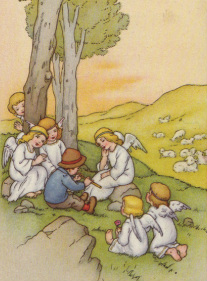
Why was this Festival instituted?
1. To thank God that He has given to each of us a special angel to lead us through the dangers, of this world to heaven;
2. That we may show ourselves grateful to the holy angels, who have done us so much good.
Is it certain that every one has a special guardian angel?
Yes; for many passages in Holy Scriptures attest it; ii. Exod. xxiii. 20, 21. Ps. xxxiii. 8; xc. ii. Job. xxxiii 23., Acts. xii. 15,but especially the words of Christ: "See that you despise not one of these little ones: for I say to you that their Angels in heaven always see the face of my Father who is in heaven;" (Matt, xviii. 10.) which words of the Saviour the holy Catholic Church has always expounded to mean that to every one is given a special guardian angel.
What is the office of guardian angels?
To protect us from dangers of body and soul. So it is written in Ps. xc. ii.: "For he hath given his angels charge over thee; to keep thee in all thy ways. In their hands they shall bear thee up: lest thou dash thy foot against a stone," that is, that thou mayest not sin or fall into any other misfortune. "Oh what a great favor of God," exclaims St. Bernard, "O what wonderful love! Who has commanded? .... Godl Whom has He commanded? .... The angels, those noble spirits who share God's home! What has He commanded them? .... To protect and guard us poor mortals! O Lord! what is man that Thou art mindful of him!" The holy guardian angels perform the greatest service for the soul. They protect us in dangers and temptations, warn us against evil, encourage us to good, offer to God our prayers and stand by us in the hour of death. Yea, they minister to us after death, as Christ said that the poor Lazarus was carried by the angels into Abraham's bosom. (Luke xvi. 22.)
Have wicked men also a holy guardian angel?
God protects the body of even the most hardened sinner, that he may not perish before the time, but the holy angel can have no pleasure in a sinner. St. Basil the Great says: "As smoke scatters the bees, and offensive smell - disperses the doves, so does horrible, lamentable sin turn from us the angel, the guardian of life. But if a sinner repents: then there is joy in heaven, as the Saviour asserts: There shall be joy before the angels of God upon one sinner doing penance! (Luke xv. 10.)
What do we owe our guardian angel?
According to the doctrine of St. Bernard: Reverence on account of his presence; Gratitude for the solicitude he has for us; Confidence and Love, by virtue of which we turn to him and entreat his protection in all difficulties and temptations.
What consolation does the presence of our guardian angel give us?
That of being fearless and courageous in all dangers of body and soul, for "of whom need we be afraid," writes St. Bernard, "with such powerful protectors?" They cannot be conquered or led away, they protect us in all our paths. They are faithful, mighty and wise, why should we tremble? Only let us follow them, cling to them, and remain under the protection of God, the Lord of Heaven.
What ought we to do on this day?
We ought to spend the day in a most devout manner, reverencing our holy guardian angel, and thanking him for all the benefits received through the course of our whole life, ask his pardon for the vexations we may have caused him through our sins, recommend ourselves again to his protection and promise him constant fidelity and obedience.
PRAYER. Almighty, eternal God! Thou, who in Thy great goodness hast given to every man a guardian angel, grant that I may honor, love and obey my guardian angel, that through Thy grace and his protection, I may be saved and with him behold in heaven Thy divine face for all eternity.
Holy guardian angels, defend us in the combat that we may not perish on the dreadful Day of Judgment.
[The Introit is the same as on the feast of St. Michael-September 29th.]
PRAYER OF THE CHURCH. O God, who in Thy unspeakable providence vouchsafest to send Thine angels to keep guard over us: grant unto Thy suppliants that we may be continually defended by their protection, and rejoice eternally in their society. Through Jesus Christ our Lord. Amen.
LESSON. (Exod. xxiii. -20 23.) THUS saith the Lord God: Behold, I will send my angel, who shall go before thee, and keep thee in thy journey, and bring thee into the place that I have prepared. Take notice of him and hear his voice, and do not think him one to be contemned: for lie will not forgive when thou hast sinned, and my name is in him. But if thou wilt hear his voice, and do all that I speak, I will be an enemy to thy enemies, and will afflict them that afflict thee: and my angel shall go before thee.
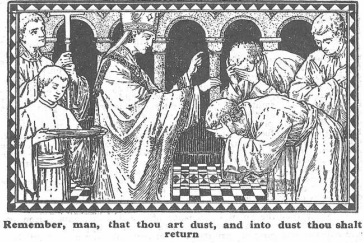
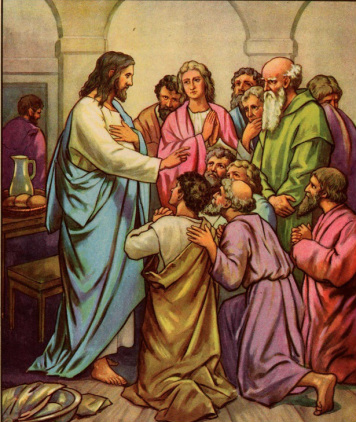

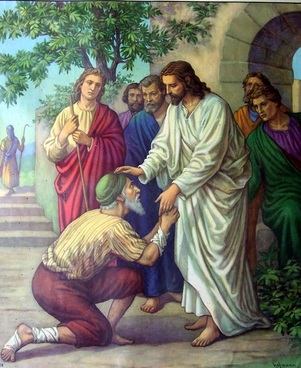
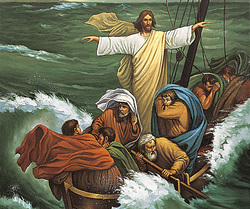
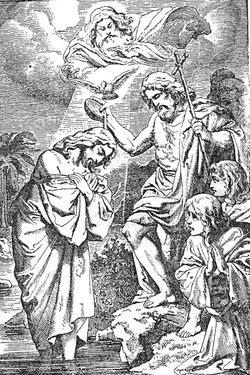

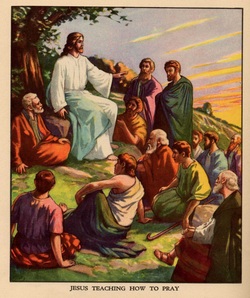
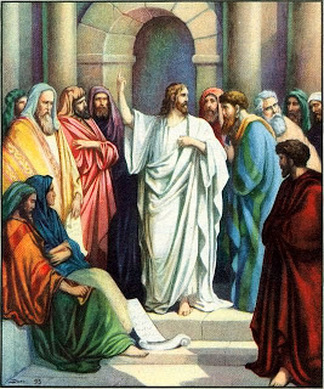
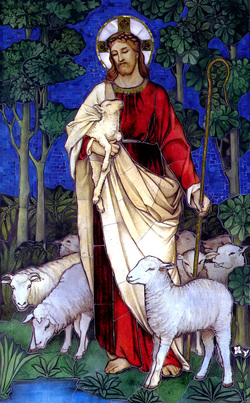
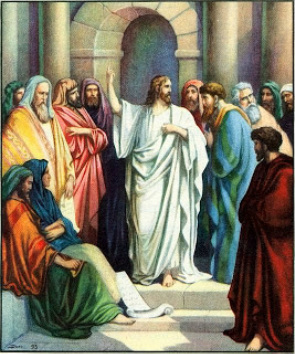
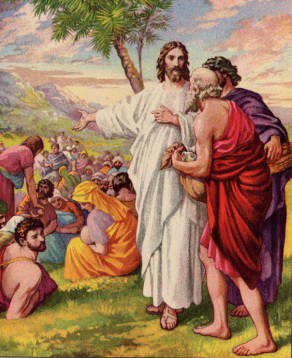
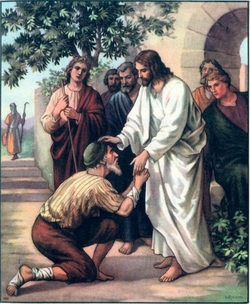
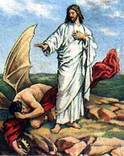
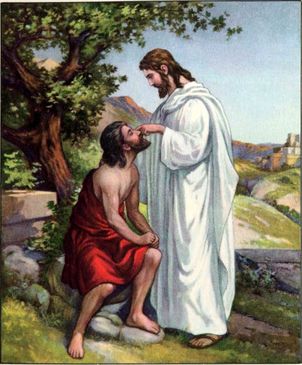
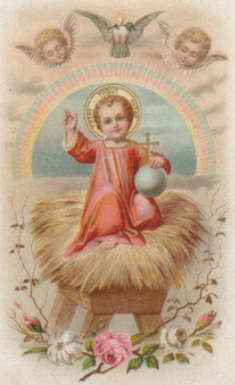
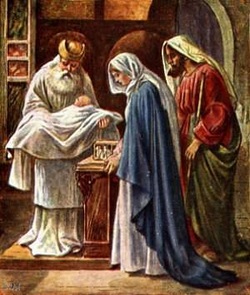
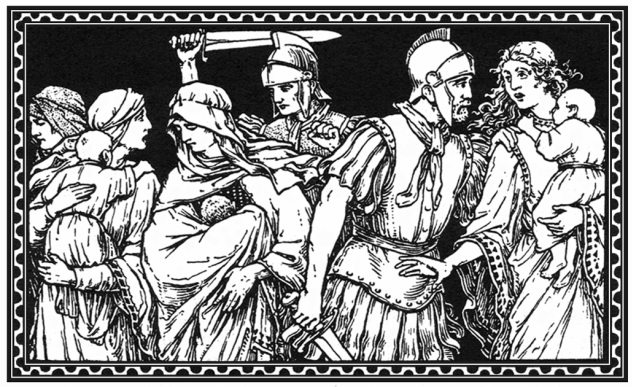
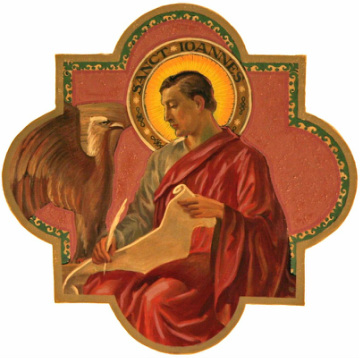


 RSS Feed
RSS Feed